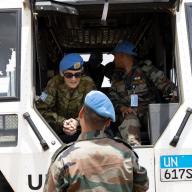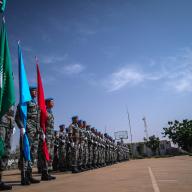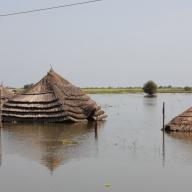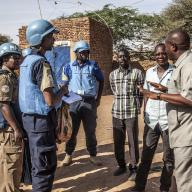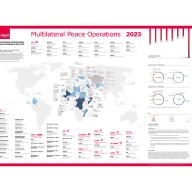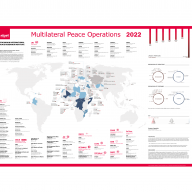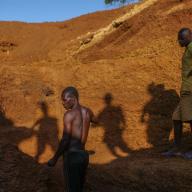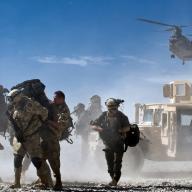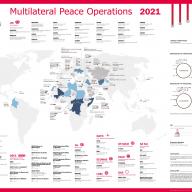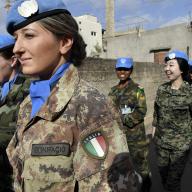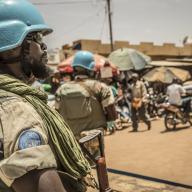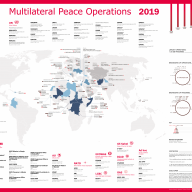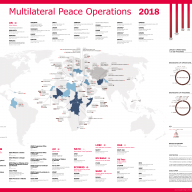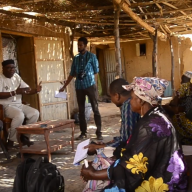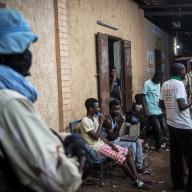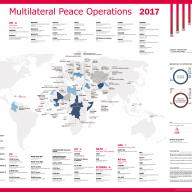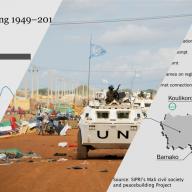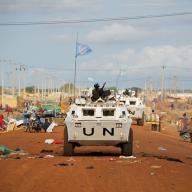SIPRI presents its latest data on multilateral peace operations in 2023. This topical backgrounder summarizes the key findings of the new data along with important developments related to multilateral peace operations during the year.
Related commentary: Peace operations and conflict management
Iraq since the invasion: 20 years in SIPRI data
To commemorate the upcoming 20th anniversary of the invasion of Iraq on 20 March, SIPRI has prepared this Topical Backgrounder along with an Interactive chronology of security developments in Iraq spanning from 2002 to 2021. These materials are components of a larger collection of new materials that SIPRI is creating to commemorate the anniversary.
Organized environmental crime: Why it matters for peace operations
Organized environmental crime has become one of the fastest-growing types of organized crime. In many conflict-affected contexts, it is the primary source of financing for non-state armed groups. In the light of this, how can peace operations and other multilateral actors respond to conflicts which are driven or sustained by activities that involve illegal exploitation and trade in natural resources?
Multilateral peace operations in Afghanistan between 2001 and 2021
This SIPRI Topical Backgrounder gives an overview of the four multilateral peace operations that were active in Afghanistan between 2001 and 2021. It presents SIPRI data on the number and categories of international personnel deployed in each operation, drawn from the SIPRI Multilateral Peace Operations Database.
Global and regional trends in multilateral peace operations, 2009–18
On the International Day of United Nations Peacekeepers, the Stockholm International Peace Research Institute (SIPRI) is releasing new data on multilateral peace operations. This topical backgrounder summarizes the main findings from the data on the year 2018 and the decade 2009–18.
Global and regional trends in multilateral peace operations, 2008–17
SIPRI recently released new data on deployments and fatalities in multilateral peace operations when it launched the 2018 edition of the SIPRI Yearbook. This topical backgrounder expands on the events of 2017 and puts this data in a 10-year perspective. For the first time, SIPRI data on and analyses of personnel deployments in the previous year and decade is based on monthly instead of annual snapshot figures.
Success of Joint Force Sahel depends on local actor engagement
Annelies Hickendorff looks at how the newly launched Joint Force Sahel requires-for success-a strong civilian component that focuses on development and governance through a bottom-up strategy promoting economic progress, alternative livelihoods, democratic civilian oversight, transparency and accountability.
Afghanistan: The Istanbul Process in urgent need of more attention
On 30–31 October China hosted the postponed fourth ‘Heart of Asia’ ministerial conference in the framework of the Istanbul Process. Inaugurated in 2011, the Process is the only multilateral vehicle led by Afghanistan, thus permitting the country a greater say in its own affairs. Its objective is to facilitate Afghanistan’s reconstruction through interregional collaboration. To this end, and in a short period of time, the Process has successfully managed to commit 14 participating members, some of which previously had difficulty coming together, to cooperate. However, the Process is beset by a number of internal and external challenges that necessitate attention. Newly elected Afghan president Ashraf Ghani and his administration will have to designate ample human resources and diplomacy efforts to guarantee the process’ effectiveness and sustainability.
Peace operations in a multipolar world: a surprising consensus
Preliminary results from an ongoing SIPRI research project suggest that consensus remains possible in the future peace operations landscape, even with influence shifting from established to emerging powers.
Voting under the gun: elections and conflict around the world
An 'election-violence' paradox: voting during civil conflict often leads to violence, but elections are often still considered a way to stabilize peace after a conflict ends.
Can UN troops influence economic development? The case of South Sudan
The deployment of UN peacekeepers in South Sudan is associated with higher cereal production between 2008–11, suggesting peacekeeping missions can help to secure food security.
'Responsibility while protecting': are we asking the wrong questions?
The Brazilian-proposed concept of ‘responsibility while protecting’ (RWP) has polarized opinion on how the international community should respond when civilian populations are targeted. RWP’s supporters claim it would make civilian protection interventions, especially military ones, more accountable and proportionate and rein in perceived misuse of the internationally accepted ‘responsibility to protect’ (R2P). Some of RWP’s opponents see it as a deliberate ploy by states aligned with China and Russia to impede intervention. In reality, this debate is a distraction from less comfortable truths about R2P.
Arctic cooperation must become more inclusive
July 2011 saw the lowest extent of Arctic sea ice for that month since satellite measurements began in 1979. An increasingly accessible Arctic, and the economic and other potential benefits it offers, has sparked new interest in the region, not only among those states with territory in the Arctic but also among a range of non-Arctic states and organizations. To date, the Arctic states have sought to deal with Arctic matters among themselves, while keeping non-Arctic countries and organizations at arm’s length.
The mining ban in the Democratic Republic of the Congo: will soldiers give up the habit?
On 11 September, during a tour of Nord-Kivu province, Congolese President Joseph Kabila announced that all artisanal mineral exploitation in the east of the Democratic Republic of the Congo (DRC) was suspended. According to Kabila, the ban is intended to stem the recent upsurge of violence in the area. Kabila is right that the violence is due, among other things, to competition over control of the mining areas and access to the associated revenues. The question is how much good a ban alone can do.
Climate change, land and security
As world leaders gather at the United Nations Climate Change Conference in Copenhagen this week, the effects of climate change have already created serious security threats in many parts of the developing world. While slowing climate change is an unavoidable responsibility, from a security perspective the most pressing challenge for the international community in the next five years is dealing with the impacts of climate change on vulnerable regions.
Afghanistan’s troubled prospects
Q: What changes do you see in the coming five years?
Barnett Rubin: I have no idea. There are too many imponderables. If you had asked five years ago what Afghanistan would be like today, I would have been completely wrong and I don’t expect that I would be right this time. (Interview with Integrated Regional Information Networks, 20 June 2006)

